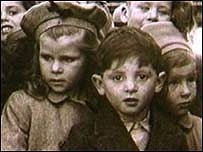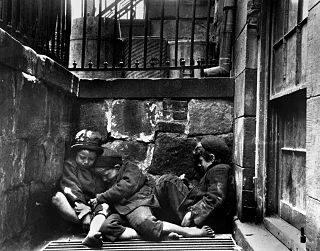Partnerships
Dr. Glenn Saxe, director of The Child Study Center at New York University's Langone Medical Center, has worked with KVC to adapt his Trauma Systems Therapy (TST) approach to the foster care community. This aims to equip foster parents to better support children who have experienced trauma such as abuse or neglect.
KVC Health Systems partnered with the Annie E. Casey Foundation, Child Trends, and the Child Study Center at New York University to conduct a five-year study of integrating trauma-informed care into the child welfare system. The study found that the implementation of TST throughout the entire agency was successful and created positive results for children. Children exposed to TST showed measurable improvements in functioning, behavior regulation and placement stability (which means not moving from foster family to foster family). Within the first three months of exposure to trauma-informed care, children also showed improvements in emotional regulation. Finally, staff reported higher levels of effectiveness with children based on concerted care using an integrated, multi-disciplinary approach grounded in a common language and shared interventions.
Sesame Street in Communities has partnered with KVC Health Systems to help bring resources to children and families in the Kansas City, KS area. This partnership will allow for KVC to train our employees and share with the families we serve on how to best help children deal with difficult topics like grief, traumatic experiences and others.

Foster care is a system in which a minor has been placed into a ward, group home, or private home of a state-certified caregiver, referred to as a "foster parent", or with a family member approved by the state. The placement of a "foster child" is normally arranged through the government or a social service agency. The institution, group home, or foster parent is compensated for expenses unless with a family member.

Childcare, also known as day care, is the care and supervision of one or more children, typically ranging from two weeks to 18 years old. When describing a business class, 'daycare' is usually written as a single word. Although most parents spend a significant amount of time caring for their child(ren), childcare typically refers to the care provided by caregivers who are not the child's parents. Childcare is a broad topic that covers a wide spectrum of professionals, institutions, contexts, activities, and social and cultural conventions. Early childcare is an important and often overlooked component of child development.
Child advocacy refers to a range of individuals, professionals and advocacy organizations who speak out on the best interests of children. An individual or organization engaging in advocacy typically seeks to protect children's rights which may be abridged or abused in a number of areas.
Maximus Inc. is an American government services company, with global operations in countries including the United States, Australia, Canada, and the United Kingdom. The company contracts with government agencies to provide services to manage and administer government-sponsored programs. Maximus provides administration and other services for Medicaid, Medicare, health care reform, welfare-to-work, and student loan servicing among other government programs. The company is based in Tysons, Virginia, has 39,600 employees and a reported annual revenue of $4.9 billion in fiscal year 2023.
Child protective services (CPS) is the name of an agency responsible for providing child protection, which includes responding to reports of child abuse or neglect. Some countries and US states use other names, often attempting to reflect more family-centered practices, such as department of children and family services (DCFS). CPS is also sometimes known by the name of department of social services, though these terms more often have a broader meaning.
Child Trends is a nonprofit, nonpartisan, research center based in Bethesda, Maryland, that conducts research on children, children's families, child well-being, and factors affecting children's lives.
The Children's Guild is a non-profit organization that operates evidence-based behavioral health and child welfare programs, public charter and special education schools, and a national training and consulting program in the United States.
Children's Institute Inc. (CII) is a nonprofit organization that provides services to children and families healing from the effects of family and community violence within Los Angeles. Founded in 1906 by Minnie Barton, Los Angeles's first female probation officer, the organization was first designed to help troubled young women who found themselves adrift in Los Angeles. The organization has since expanded its services to at-risk youth in Los Angeles who are affected by child abuse, neglect domestic and gang violence as well as poverty. CII is a multi-service organization that combines evidence-based clinical services, youth development programs and family support services designed to address the whole child and entire family. The organization provides various forms of trauma support—including therapy, intervention services, parenting workshops, early childcare programs and other support services offered in English, Spanish and Korean.
Medical centers in the United States are conglomerations of health care facilities including hospitals and research facilities that also either include or are closely affiliated with a medical school.
Trauma Systems Therapy (TST) is a mental health treatment model for children and adolescents who have been exposed to trauma, defined as experiencing, witnessing, or confronting "an event or events that involved actual or threatened death or serious injury, or a threat to the physical integrity of self or others". TST focuses on the child's emotional and behavioral needs as well as the environments where the child lives (home, school, community). The treatment model includes four components (skill-based psychotherapy, home and community-based care, advocacy, and psychopharmacology) that are fully described in a published manual. A clinical trial showed that TST is effective in improving the mental health and well-being of children who have been traumatized. TST has also been successfully replicated.
The Barber National Institute is a nonprofit, multi-faceted organization that provides services to more than 5,400 children, adults, and families who are faced with autism, intellectual disabilities, and behavioral health challenges. The Institute's central facility was founded in 1952 and is located in Erie, Pennsylvania. The Barber National Institute now employs more than 3,000 staff members throughout the state.

DePelchin Children's Center, founded in 1892 in Houston, Texas, is a nonprofit organization focused on supporting and sustaining children and the families who care for them. DePelchin provides a range of services for children and families — it is an accredited foster care and adoption agency, and it also provides residential treatment for youth in foster care, as well as serving youth who are about to age out of foster care or have recently aged out of foster care. DePelchin’s services also include counseling, parenting classes, and other services focused on protecting children and keeping families strong. The center continues to be recognized at the state and federal level for cutting-edge programs, including a federal grant as a leading child trauma expert in Texas.
Youthville is a nonprofit child welfare agency in Kansas involved in Foster Care, Adoption, Residential Treatment, Counseling and Therapy. The agency was founded in the early 1920s as an outreach of the United Methodist Church to be a residence for homeless and abandoned children. Youthville exercises custody of over 1,400 Kansas children and is one of the largest nonprofit organizations in the state of Kansas.

Foster care is the term used for a system in which a minor who has been made a ward or a non-minor, typically aged 18–21, who volunteers for placement, is placed in a relative placement, a non-related extended family (NREFM) placement, a community family home, an institution, a group home (residential child care community, residential treatment center, etc. Relative, NREFM, and community caregivers certified by the state are typically referred to as "foster parents," "kin caregivers," "resource parents," or other local terms. The placement of the child is usually arranged through state or county social services. The institution, group home, or caregiver is reimbursed for the expenses related to caring for the child. The state via the family court and child protection agency stand in loco parentis to the minor, making all legal decisions, while the caregiver is responsible for the day-to-day care of the minor. Even while their child is in Care, typically birth parents retain Education and Medical rights and the right to contact with their child unless parental rights are terminated by the Court.

The New York City Administration for Children's Services (ACS) is a New York City government agency that prosecutes parents, caregivers, and juveniles in child protective service and delinquency proceedings in New York City. ACS has been the subject of numerous civil rights lawsuits involving the wrongful removals and deaths of children as well as constitutional violations of both parents and children.
Children's Health is a pediatric health care system in North Texas anchored by two hospitals, Children's Medical Center Dallas and Children's Medical Center Plano, as well as seven specialty centers and 19 pediatric clinics located throughout the region. A private, not-for-profit organization, Children's Health provides pediatric health, wellness and acute care services for children from birth to age 21, including specialty care, primary care, home health, a pediatric research institute, and community outreach services.
Graham Windham is a private nonprofit in New York City that provides services to children and families. It was founded in 1806 by several prominent women, most notably Elizabeth Schuyler Hamilton. Since 2015, the organization has gained renewed attention because of the success of the Broadway musical Hamilton, in which the character of Eliza Hamilton describes the orphanage as her proudest achievement.
Residential child care communities or children's homes are a type of residential care, which refers to long-term care given to children who cannot stay in their birth family home. There are two different approaches towards residential care: The family model and the shift care model.
Chapin Hall at the University of Chicago is a policy research institution at the University of Chicago that focuses on child welfare and family well-being. Chapin Hall is funded through social service systems, foundations, and non-profit organizations. The organization's focus areas include child welfare and foster care systems, youth homelessness, and community capacity to support children, youth, and families. Chapin Hall is an affiliated research center of the University of Chicago.

The Kansas Department for Children and Families is a state agency in Kansas, responsible for the delivery of social services to those in need of them.






